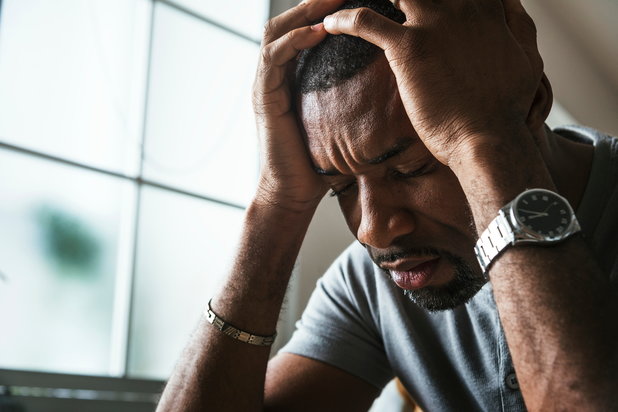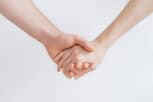According to a study, an estimated 20 percent of patients with an anxiety disorder also suffer from alcohol abuse or dependence. One theory suggests that this correlation occurs because out of the people who suffer from anxiety, those who have social anxiety use alcohol to alleviate their fears. Thus, they drink excessively to cope with their symptoms or to try to escape them. But there's actually some evidence that alcohol does the opposite and actually aggravates anxiety or even trigger panic attacks.
Stress and Alcohol: A Bad Mix
Alcoholism and anxiety disorders often co-occur together. Anxiety is a feeling of worry or fear about what’s going to happen. It can also have physical symptoms, such as sweating, increased heart rate and trembling. On the other hand, alcohol is a sedative and depressant. So, at first, some individuals find that drinking can reduce fears and some physical symptoms while making them feel more relaxed.
However, once a person starts drinking, they can build a tolerance to the de-stressing effects of alcohol. Alcohol changes levels of serotonin and other neurotransmitters in the brain, which can actually worsen anxiety. In fact, there may be an increase in feeling anxious after the alcohol wears off. This can make anxiety and stress even more difficult to cope with.
Here is an example of a typical cycle:
Step 1: You drink alcohol
Step 2: You initially feel calm as the alcohol affects the brain
Step 3: You feel anxiety as a symptom of alcohol withdrawal
Step 4: You want to drink again to try to relieve your anxiety
As the initial calm feeling fades, you may feel anxious again as the effects of the alcohol wear off. And the more alcohol you drink, the greater your tolerance will become. Over time, you may need to drink more alcohol to feel the same sense of stress and anxiety relief.
Strategies for Coping with Anxiety
Anxiety can be paralyzing. In order to survive bouts of panic and stress, it is necessary to identify strategies other than alcohol to get through circumstances that trigger a return to drinking.
Next time you're feeling anxious, here's a list of 25 things that can help reduce stress and anxiety without using substances.
1. Meditate to promote mindfulness.
2. Eat well-balanced meals and energy-boosting snacks, and dump the junk food.
3. Get enough sleep and make it a priority.
4. Practice yoga and learn to breathe deeply while living in the moment.
5. Listen to music to promote an optimistic mood.
6. Forgive yourself for not being perfect or for not handling a situation in an ideal way.
7. Let go of the idea of perfection and just do your best and be proud of what you accomplish.
8. Exercise daily and get active to help increase the levels of serotonin in your body.
9. Accept that you cannot control everything.
10. Laugh and welcome humor into your life to release tension and lower anxiety, even if this means just finding something funny on the internet that makes you laugh out loud.
11. Slow down and attempt to live life more slowly than usual. This will promote peace of mind.
12. Create affirmations to recite and encourage more optimism in your day-to-day life.
13. Stop multi-tasking. Too much sensory input increases stress and anxiety. It hardly makes you twice as productive anyway.
14. Maintain a hopeful and confident attitude when you can. And whenever you can't, fake it until you make it. In other words, after a while of acting happy and self-assured, you will generate true confidence and more easily replace negative thoughts with productive ones.
15. Get involved by volunteering for a cause you are passionate about.
16. Be social and connect with others by visiting, calling, or sending an email to a friend, even if it is someone you haven't talked to in a while.
17. Take a break from watching the news or reading newspapers which can intensify anxious thoughts.
18. Use imagery to achieve a state of calm by visualizing yourself in a peaceful place, like a mountain stream, a forest, a secluded beach.
19. Cuddle and hug your pet for unconditional support.
20. Give yourself a break. Remember, if someone you care about does something just as bad, you wouldn't condemn as hard as you do yourself.
21. Unplug and avoid social media, texting, and all things electronic for some peace.
22. Get outdoors and connect with nature.
23. Pay attention to the good things and appreciate the small, everyday blessings. From the bed you slept in the night before, to the smell of clean air after the rain—deeply feel gratitude for them all.
24. Remember that no one is judging you as much as you're judging yourself.
25. When you're having a hard time, don't focus on what could have happened. Instead, look forward to the next steps you can take to improve the situation.
Treatment is Straightforward, But You Need to Be Picky
Together, a substance problem combined with anxiety creates a vicious cycle that's difficult to free yourself out of on your own. One of the best steps you can take is to seek professional help, and even that is not as simple.
When choosing a facility or treatment program, you have to make sure you find one that is equipped to address both co-occurring disorders, often referred to as a Dual Diagnosis. It's important that the use of medication to address the anxiety is carefully monitored by a qualified physician since many can be highly addictive. For people who have a history of substance abuse, the chances of abusing prescription for anxiety are increased. If the goal is full recovery from both disorders for the long-term, ensure the program also provides therapy that aims to alter behavioral patterns that lead to the issues in the first place.
|
If you or someone you know is seeking help from addiction, please visit our directory of treatment centers or call 800-772-8219 to speak to a treatment specialist. |








